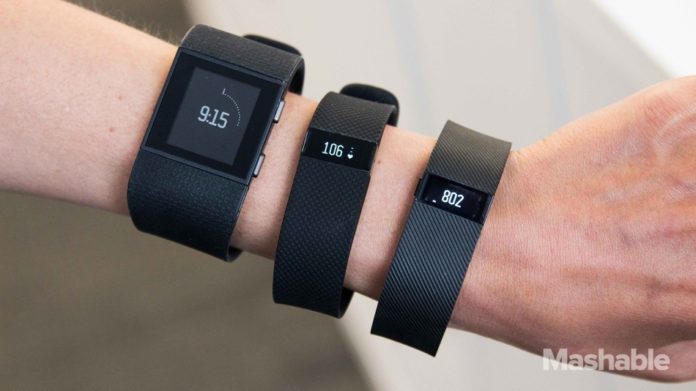The latest batch of Fitbit trackers are causing skin rashes — again

Just one year after Fitbit recalled its ill-fated Fitbit Force following reports that it caused rashes on wearers’ wrists, people are seeing some serious skin irritation from the latest batch of the fitness trackers.
The Fitbit Force was pulled for causing allergic reactions to the wristband’s material, but this time, the company said these rashes resulted from wearing the bands too tightly.
Most complaints seem to stem from the Fitbit Charge and Fitbit Surge, but the company said it’s only impacting “a very limited percentage of users,” according to a Re/code report.
A Google Doc created by a Fitbit user is circulating to track complaints, which range from “the band is itchy” to “I received a burn or deep painful rash” on the inside of the wrist (this user noted that the irritation came from rubbing against the charging port area of the Fitbit Charge).
anyone else getting a rash like this from their new @fitbit charge? @FitbitSupport any ideas? pic.twitter.com/XOpftesQzA
— James Hampson (@jthampson2) November 9, 2014
Fitbit told Re/code the reactions “are likely from wearing the band too tight; sweat, water, or soap being held against the skin under the device; or from pressure or friction against the skin.” It added that a rash will “resolve quickly when users take a break from the device, usually within hours or days.”
This is problematic, of course, when users are supposed to keep the tracker on 24/7 to gain a true picture of their activity and health rate.
However, the “it’s too tight” explanation doesn’t come at a huge surprise. When Mashable reviewed the Fitbit Surge, the company sent along some tips for optimal use; while most of the tips were either in regular text or bolded, one statement was highlighted in red: “Do not wear your tracker too tight.”
Fitbit followed up this advisory with an explainer about how a “tight band restricts blood flow, potentially affecting the heart rate signal,” but can’t help but wonder if tighter bands caused irritation during their testing, too. (Editor’s note: Mashable didn’t experience any skin irritation during the review process. )
It hasn’t been a great week for fitness trackers. According to a recent study conducted by the University of Pennsylvania School of Medicine, free smartphone apps are just as accurate for tracking physical activity data as physical wristband trackers, which can cost anywhere between $50 and $250 (if you consider the higher-end Fitbit Surge “superwatch”).

Image: Mashable, Luke Leonard
The study examined various smartphone apps and pitted them against 14 different devices, from waistband to wristband trackers. The results revealed that the Fitbit Flex, Nike Fuelband and Jawbone UP24 were the least accurate in counting steps, which undercounted steps between 1.5% and 22.7%. However, smartphone apps only miscounted by about 6% and pedometers were the most accurate (only missing the mark by about 1%).
Nevertheless, there still a strong case for consumers to use a physical device instead of an app. For example, for serious runners, some fitness trackers (like the Fitbit Charge HR and Fitbit Surge) monitor heart rate in real time, and the option of leaving your smartphone at home is always a bonus.
Fitbit has not commented on whether or not it is considering a recall of its latest rash-causing products.
Have something to add to this story? Share it in the comments.
